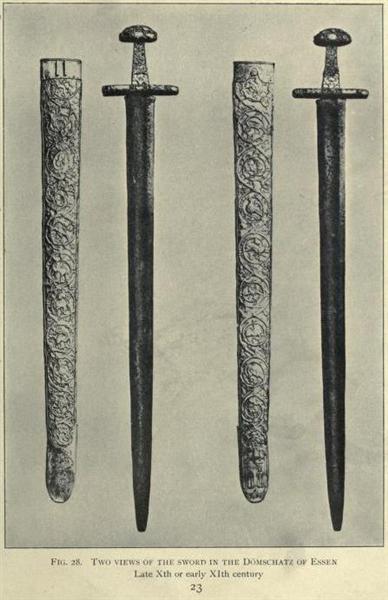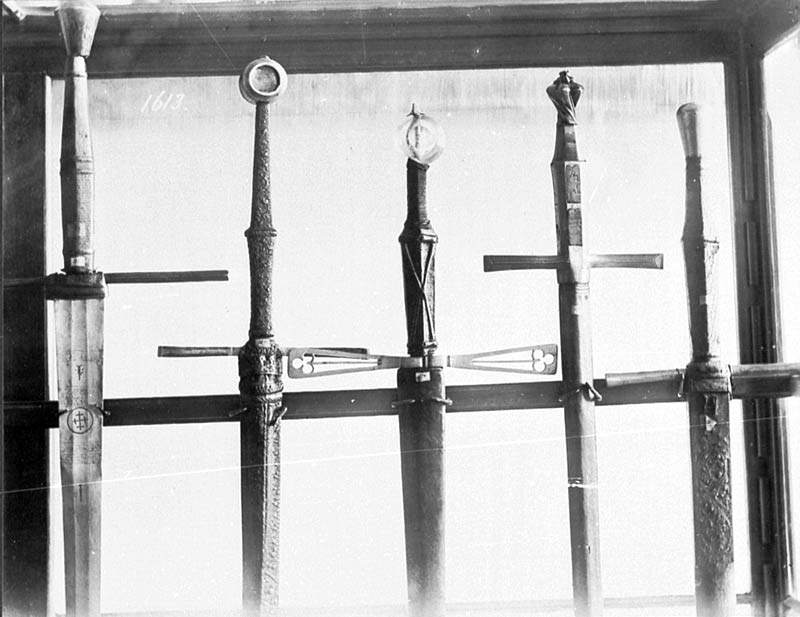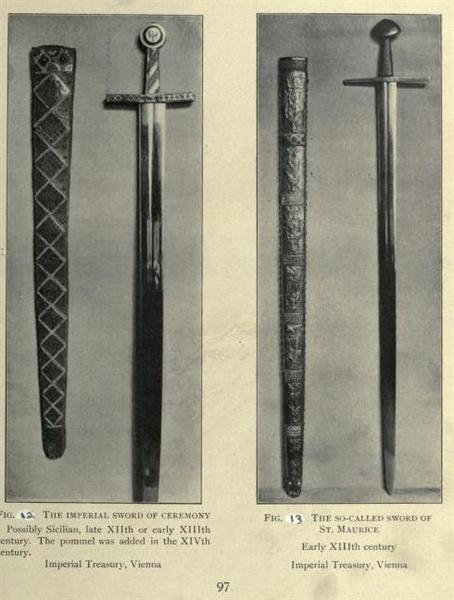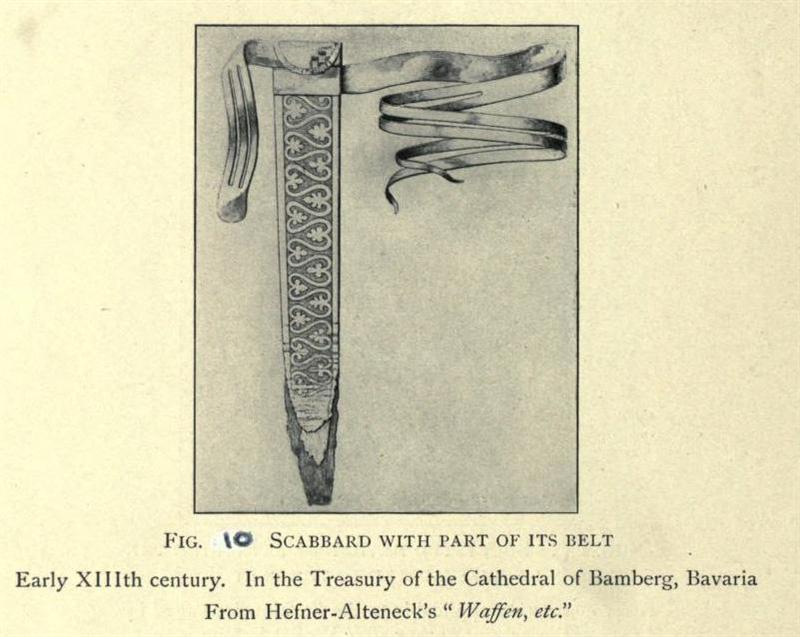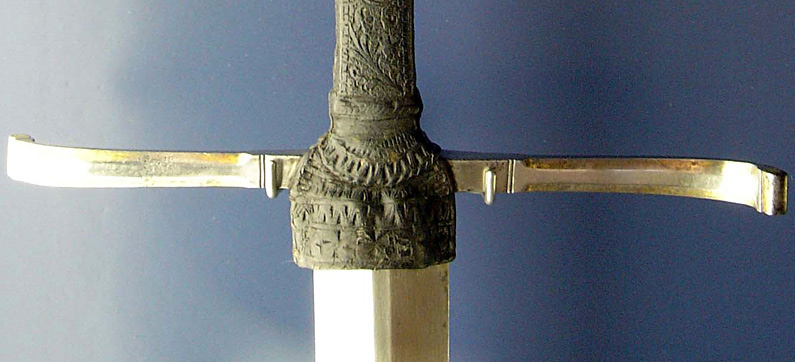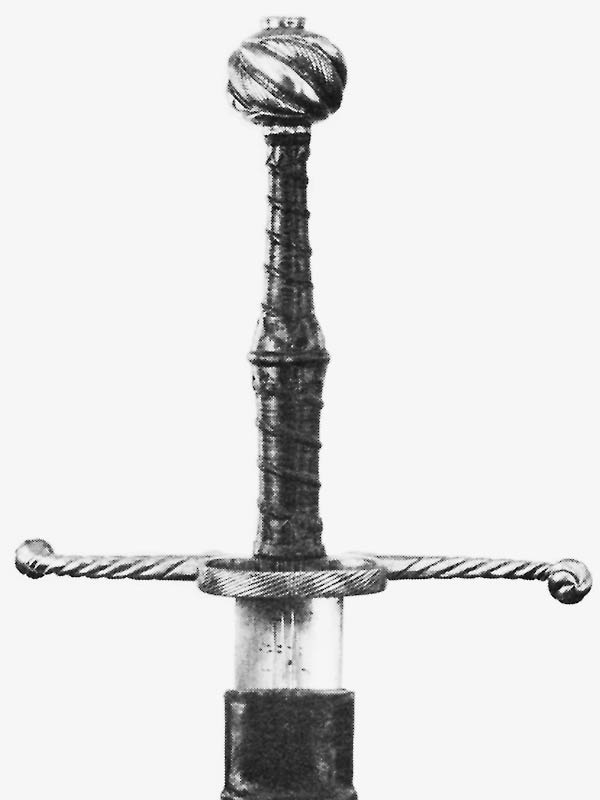Nevertheless, effigies and other graphical sources sometimes picture some that showed more subtleties in the leather tooling and overall design (You have to look harder for them though, hence this post)
We as a community have a fairly systematic approach when considering a given period scabbard (type X to XIII brings to mind the complex belt system from P Johnson sketch, with triangular leather at the guard etc, XV century, plain core, just a central riser and lines, knotted leather suspensions....).
If you happen to have pictures of med scabbards fitting that description, please share them here (pre baroque please!)
I'll start with those two below.
first one dates from the early XI century, and very unusual for this sword type.
Second one is borderline (tooling is very similar to those found on cinquedea scabbards) from the V&A, Northern Italy, ca. 1498
Cheers,
J
